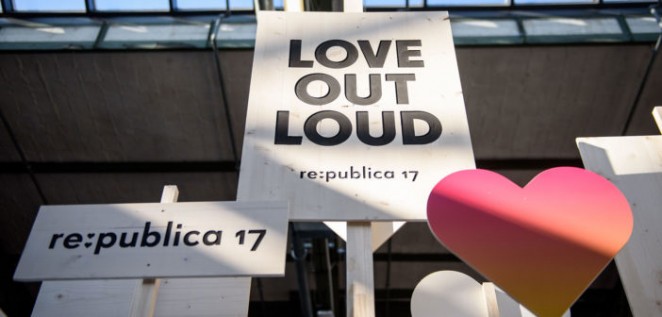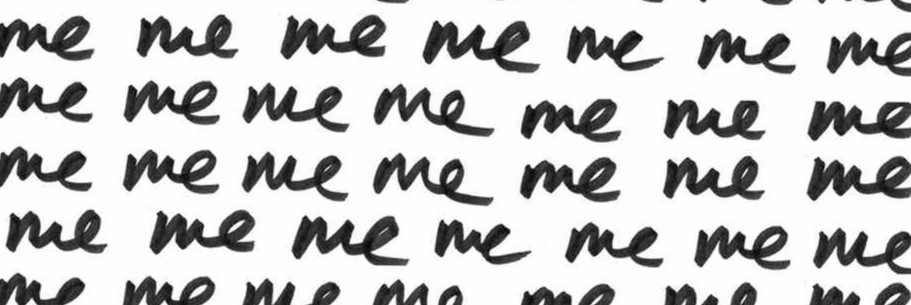Starting life as a cosy catch up between the German blogs Spreeblick and netzpolitik.org back in 2007, re:publica has since become one of the world’s leading forums for exploring the current state, and possible future, of digital culture. And whilst it may have begun as an informal meeting, nowadays the festival unites hundreds of speakers from over 71 countries, who all gather in Berlin to share their knowledge on topics including activism, science, NGOs, journalism, social media, marketing and more, within the digital sphere.

‘Love out Loud’ was this year’s festival motto. A call to action which prompted 9000 visitors to join three days of discussions, speeches, workshops and debates about everything from internet politics and technological innovations, to the musical, cultural and media advancements shaping our online lives.
Re:publica stems from the Latin phrase, 'res publica', which roughly translates as ‘public matter’. On the activism front at this year’s conference, speakers such as Kübra Gümüşay and Elisabeth Wehling reflected on right-wing provocation and the power of linguistic images, whilst a talk about internet politics between Thomas de Maizière, Constanze Kurz and Markus Beckedahl prompted a wealth of discussions throughout the weekend.
On the subject of social-related issues, a talk about Smart Cities hosted by Ding Wang and Vanessa Thomas concluded that whilst the ‘smart city’ rhetoric may be verging on becoming an invasive species, beneath the difficult choice of phrase, many city governments are using smart city techniques to implement digital systems aimed at serving city residents as best they can. Wang and Thomas spoke of the organisational issues and policy challenges that public administrators are currently encountering.
Elsewhere on topics of social, Caroline Sinders asked whether design and data could affect human behavior and potentially mitigate online harassment through the future possibilities of creating emotional data corpuses in machine learning. Caroline also asked whether marrying machine learning and social media users might help us create transparent, open systems that focus on emotions and conversations in the conversations of the future.
Alongside the re:publica line up, ticket holders were also invited to attend Media Convention Berlin - re:publica’s sister conference and a space which asks delegates to think about the current issues surrounding media and internet politics, market trends, and developments in digital media society. Talks this year included discussions about potential business models in VR, the possibility of mapping Facebook’s algorithmic empire and what the ‘invisible media’ of the future might look like.
Of course no digital festival would be complete in 2017 without its own dedicated VR slot, and the labore:tory section of re:publica line up made sure the savvy VR needs of attendees were sated. Offerings at the labore:tory ranged from the hard hitting ‘We Who Remain’ - an immersive virtual reality film that takes the viewer into the heart of conflict in Sudan), and 'Inside Auschwitz' - a recounting of three women's experiences inside Auschwitz with 360 degree landscaping, to a Coral Empathy Device which bridges the gap between the way humans and corals perceive the world around them.
Uniting all aspects of the digital arena in a space of collaboration, re:publica Berlin keeps on getting bigger and better. Catch up on all the talks you missed here, and the Media Convention Berlin highlights here.



